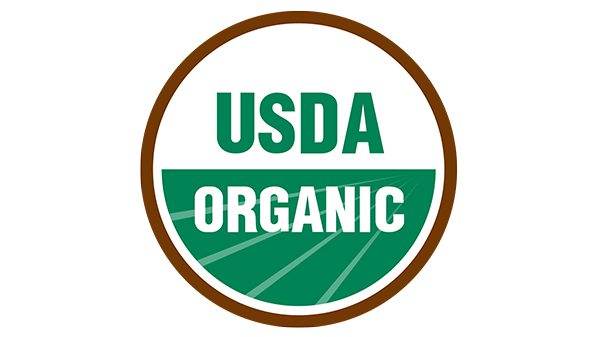
I see that the International Fresh Produce Association BB #:378962 is applauding the introduction of Continuous Improvement in Organic Standards Act.
I see also that Walmart and General Mills “join forces to advance sustainable agriculture across 600,000 acres by 2030.”
Sustainable agriculture being organics 2.0.
It would appear that organic farming and its offspring are now welcome in the agricultural mainstream.
My thoughts drift toward a dismal, rainy afternoon in San Francisco in February or March 1985. I was managing editor of California Farmer magazine.
My boss—of whom I was very fond—was out of the office a lot on speaking tours. His wife had recently died, and he needed to get away. So the office felt kind of lonely, and I felt kind of bored.
Then I thought, “What the hell.” I called a freelance writer who had pitched a story on organic farming and told him to go ahead with it.
At the time, this was like a minor Vatican official calling Martin Luther and giving him the go-ahead for the Protestant Reformation.
Because when I had been hired three years before, I was simply told we never covered anything organic. Period.
Nonetheless, the writer delivered an effective pitch. He pointed out that organic farmers were making money because they had found a lucrative product niche. Organics fetched a higher price—especially in those days—so it was feasible to make premium money by growing them. One grower he covered was Lundberg Family Farms BB #:366573, who were just getting started then and now have an impressive organic rice empire. https://www.lundberg.com/
My boss wasn’t mad when he came back, and after some back-and-forths, we ran the story in late April 1985.
It caused quite a stir. The California Farmer—known for being an extremely conservative if not reactionary magazine—promoting organic farming?
Nevertheless, the article accorded with the first commandment of the American religion—“Thou shalt make a profit”—so it could not exactly be called heterodox.
We ran more articles on organic farming—always stressing it as a profitable market niche and never mentioning environmentalism or other such abominations.
That was an early step for organic agriculture to enter the mainstream. It helped that the University of California’s agricultural sector had begun to promote organics as well.
I have to confess that I feel a certain pride in giving a small but necessary push in that direction almost forty years ago. And I’m glad to see that mainstream agriculture no longer sees organic farming and its kin as the exclusive province of loopy ex-hippies working from the Whole Earth Catalog.
But I will never forget that the industry had to be dragged that way kicking and screaming.
I see that the International Fresh Produce Association BB #:378962 is applauding the introduction of Continuous Improvement in Organic Standards Act.
I see also that Walmart and General Mills “join forces to advance sustainable agriculture across 600,000 acres by 2030.”
Sustainable agriculture being organics 2.0.
It would appear that organic farming and its offspring are now welcome in the agricultural mainstream.
My thoughts drift toward a dismal, rainy afternoon in San Francisco in February or March 1985. I was managing editor of California Farmer magazine.
My boss—of whom I was very fond—was out of the office a lot on speaking tours. His wife had recently died, and he needed to get away. So the office felt kind of lonely, and I felt kind of bored.
Then I thought, “What the hell.” I called a freelance writer who had pitched a story on organic farming and told him to go ahead with it.
At the time, this was like a minor Vatican official calling Martin Luther and giving him the go-ahead for the Protestant Reformation.
Because when I had been hired three years before, I was simply told we never covered anything organic. Period.
Nonetheless, the writer delivered an effective pitch. He pointed out that organic farmers were making money because they had found a lucrative product niche. Organics fetched a higher price—especially in those days—so it was feasible to make premium money by growing them. One grower he covered was Lundberg Family Farms BB #:366573, who were just getting started then and now have an impressive organic rice empire. https://www.lundberg.com/
My boss wasn’t mad when he came back, and after some back-and-forths, we ran the story in late April 1985.
It caused quite a stir. The California Farmer—known for being an extremely conservative if not reactionary magazine—promoting organic farming?
Nevertheless, the article accorded with the first commandment of the American religion—“Thou shalt make a profit”—so it could not exactly be called heterodox.
We ran more articles on organic farming—always stressing it as a profitable market niche and never mentioning environmentalism or other such abominations.
That was an early step for organic agriculture to enter the mainstream. It helped that the University of California’s agricultural sector had begun to promote organics as well.
I have to confess that I feel a certain pride in giving a small but necessary push in that direction almost forty years ago. And I’m glad to see that mainstream agriculture no longer sees organic farming and its kin as the exclusive province of loopy ex-hippies working from the Whole Earth Catalog.
But I will never forget that the industry had to be dragged that way kicking and screaming.
Richard Smoley, contributing editor for Blue Book Services, Inc., has more than 40 years of experience in magazine writing and editing, and is the former managing editor of California Farmer magazine. A graduate of Harvard and Oxford universities, he has published 12 books.




